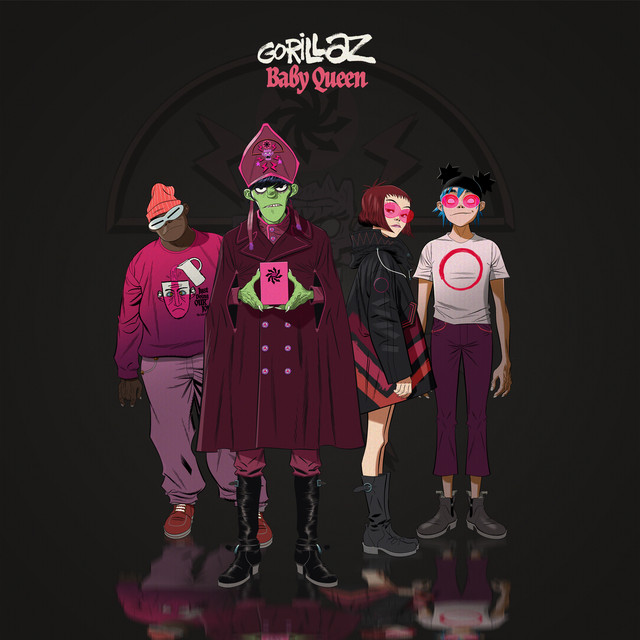The Princess and the Popstar | “Baby Queen” by Gorillaz
November 16, 2022
As one of the most influential artists of the last 30 years, Gorillaz — spearheaded by Damon Albarn — always seems to come out with an album with a punchy message at the right time. After a slight fall off during the 2010s, they had a resurgence with their sixth album, Song Machine, and look to be following it up with their newest album, Cracker Island. “Baby Queen” is the third single from this album and it seems to continue this return to form both in music and in message.
Gorillaz has always been a band that is deeply critical of the world and one that is unafraid to call out trends within it. Cracker Island, at least from what we have heard so far, is no exception. The first single, “Cracker Island,” opens the album with a scathing criticism of the current state of Hollywood, using an allegory of a cult. The second single, “New Gold,” expands on this criticism by comparing Hollywood’s rampant cosmetic surgery and drug abuse to fool’s gold. These tracks contain big name features and upbeat instrumentals by Thundercat and Tame Impala, respectively.
Branching off from these songs, “Baby Queen” has a much dreamier instrumental, slowing down the tempo from the glitz and glamor to that of a timid ballad. This complements the message of the song, which focuses on nostalgia and what could have been. The beginning of the song sets up a dream of a concert Albarn headlined in Thailand, which the princess of Thailand attended. This sets up the second verse, which shows their divergence. She risked everything and dove from her seat — surrounded by generals — into the crowd.
“She fell into the generals (Oh, Baby Queen) /
On the watch all around her.”
The next lines juxtapose this with Albarn’s apparent descent into the Hollywood lifestyle:
“I fell into the vanity /
The mirrored lights of our dreams.”
These two verses, along with the stripped-down instrumental, highlight a potential tonal shift of the album from a negative focus on the current world to a positive view of the past world only possible in nostalgic dreams. This view might be a continuation of the nihilism of Plastic Beach where, twelve years after, the issues of pollution and corruption that album focused on are just as rampant, and music has become even more corporate.
For as much as we have seen of Cracker Island’s message so far, it will be interesting to see how the other seven songs fill in the skeleton of what the singles have provided. Gorillaz always provides an intellectual listen with great collaborators, so it will be interesting to listen in February when the rest of the album is out. “Baby Queen” provides a great introduction to the calmer side of Gorillaz’ discography for anyone who hasn’t listened before.































